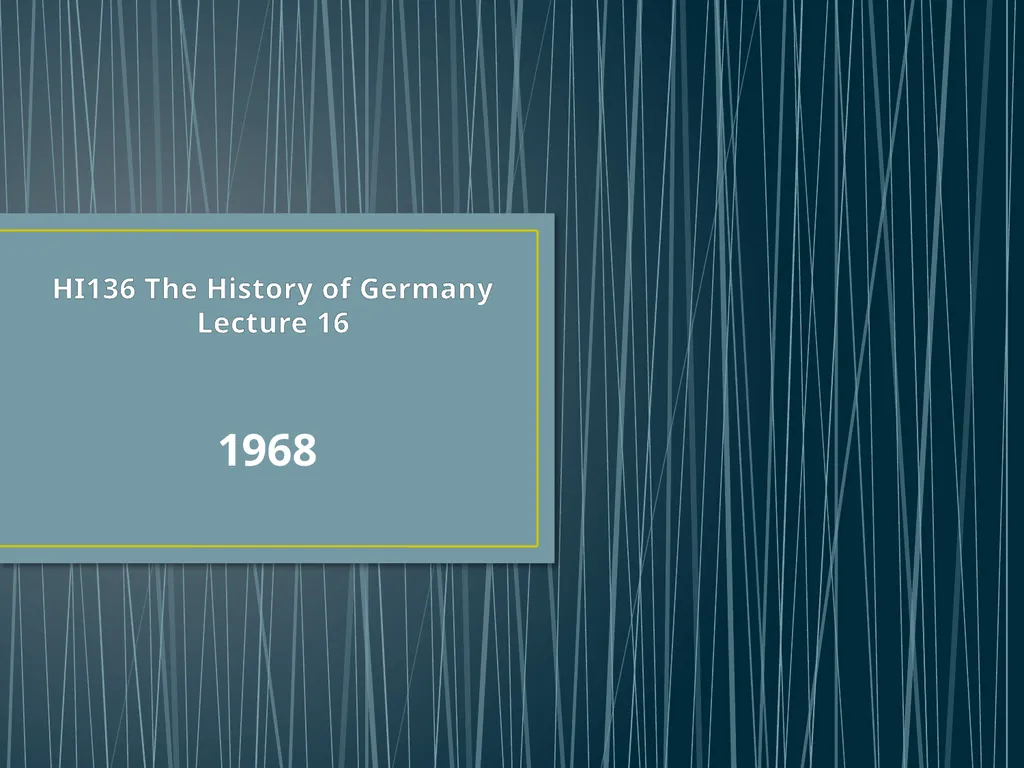
Author : cheryl-pisano | Published Date : 2025-07-18
Description: HI136 The History of Germany Lecture 16 1968 Background of Social Change The protests of 1968 reflected an ongoing process of social change, not just in Germany but in the whole of the western world. Increased prosperity and livingDownload Presentation The PPT/PDF document "" is the property of its rightful owner. Permission is granted to download and print the materials on this website for personal, non-commercial use only, and to display it on your personal computer provided you do not modify the materials and that you retain all copyright notices contained in the materials. By downloading content from our website, you accept the terms of this agreement.
Here is the link to download the presentation.
"HI136 The History of Germany Lecture 16 1968"The content belongs to its owner. You may download and print it for personal use, without modification, and keep all copyright notices. By downloading, you agree to these terms.













